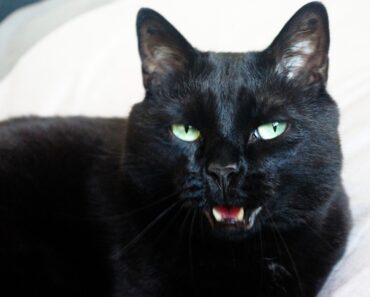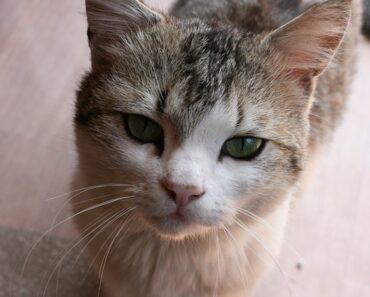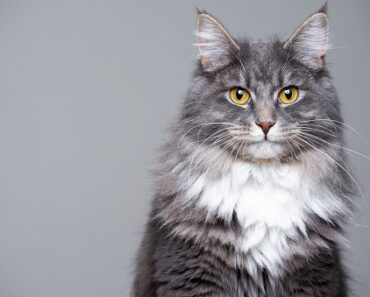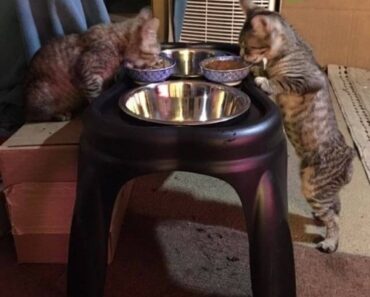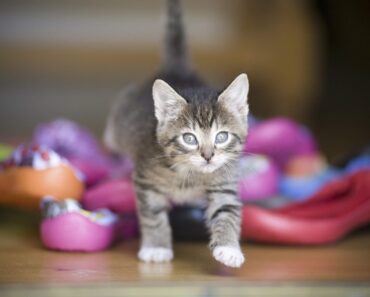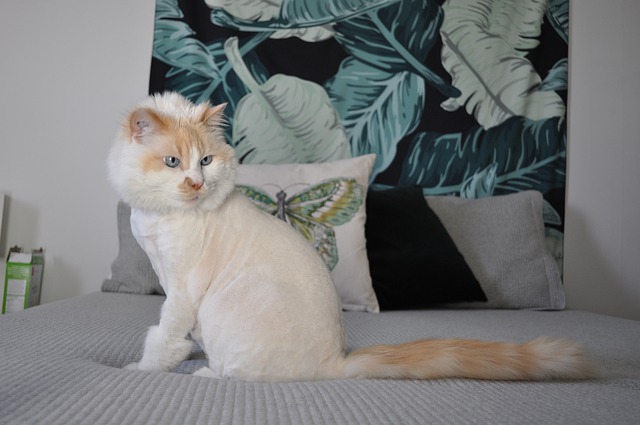
Generalities about meowing
First of all, it is important to know that in the wild, adult cats meow very little. Meowing is usually strictly reserved for fighting or breeding. It is now believed that cats meow only for humans, either because they hear humans talking and want to communicate with humans in the same way, or because domestic cats are dependent on humans like kittens and communicate with their owners as they would with their mothers.
Moreover, the frequency and intensity of meowing can vary from one breed to another. For example, the Siamese is known to be talkative and expressive, so it will meow a lot. Some breeds like the Abyssinian are on the other hand rather calm and silent. The frequency and intensity of meowing also varies with the age of your cat, the place where he lives and his possible companions, and of course with his mood.
The different types of meows
The most recognizable meows are those related to sexual activity. Thus, the pussy in heat has a very long, lingering, and repetitive meow. These meows, associated with the typical lordosis posture, do not deceive! Especially when they last until late at night… In the male cat, a hoarse meow, associated with borborygmas and some kind of howling is a sexual call for the females and a threat for the surrounding males who would like to advance on its territory.
The most common type of meowing in the home is a kind of plaintive cry, characteristic of the attention-seeking cat. It is a prolonged meowing, which becomes weaker. It must be interpreted in context: if your cat wanders around the kitchen, it is because it is hungry and is asking you to feed it. If he meows with his tail straight when you come home, it’s a “greeting” meow: he’s probably just happy to see you again and wants to be petted or carried. If the meowing is acute and repeated, accompanied by a stare, your cat insistently asks for something: he wants to go out in the garden or cuddles. If the meowing and the stare are even more insistent, your cat has a pressing need: he is hungry, thirsty or his litter box is dirty. In this case, the meowing will go crescendo until he is satisfied.
The “cooing” type of meowing is a meow of excitement, either during play or when he wants to catch a prey.
The mother also has a very special meow for calling her cubs: it is a short, high-pitched, chirping meow.
If the mews are short, jerky and spaced out with long intervals of silence, it is a sign of discomfort or pain. In cases of intense pain, mewing can also be long complaints of agony. Your cat is calling for help: he is in a bad position and is calling out for help. If your cat is meowing in the litter box, it is a sign of pain when urinating: you should consult your veterinarian.
Other language elements to interpret
Meowing should also be interpreted according to your cat’s posture (body language). For example, a vertical tail expresses joy and confidence; if it swings from left to right, the cat is annoyed and may attack; if the hair stands up and the tail becomes bushy, watch out, your cat is surprised or angry; if it hides its tail between its paws, it is afraid. The position of the ears is also informative: if they point forward, he is on the lookout; if they are lowered, he becomes threatening; finally, if they are stuck back, he is afraid.
Moreover, verbal language is not only made up of meows. Growling, growling, spitting, are signs of aggressiveness: your cat is afraid or wants to defend himself. Purring, on the other hand, is more synonymous with calm, pleasure and well-being (cuddling, meals). They can also mean that your cat wants something, something to eat for example. Beware, sometimes, when a cat is in great pain (for example after an accident or surgery) or when he is stressed (for example, in consultation with the veterinarian), he can purr very loudly as well; this purring does not mean the cat is happy, quite the contrary: it allows him to calm down, to reassure himself in a stressful or painful situation.
Sometimes, cats slam their teeth, making their mandible tremble, while emitting a brief meow. This is a typical behaviour of excitement at the prospect of capturing prey or mating (in males only). This snap is usually related to frustration (of not being able to catch prey or not being able to mate).
In conclusion, it is worth noting that if you have a quiet cat that suddenly starts meowing, or a chatty cat that suddenly stops, it may indicate that your cat is sick. Pay particular attention to cats that constantly meow when using the litter box, grooming or eating. This kind of sign could indicate that your cat is in pain somewhere.
It is by living with your cat and paying close attention to his needs and pleasures that you will be able to build a bond of complicity and accurately interpret his meowing. Because each cat is unique, as is the relationship between him and his owner, and meows are also unique. Of course, some meows will always remain unknown, because your cat sometimes has little quirks that only he knows!

